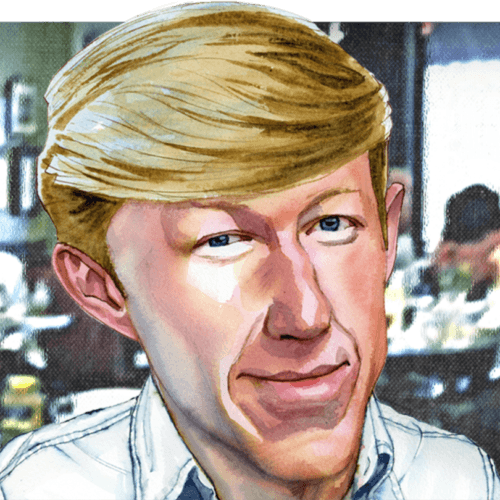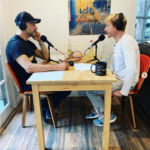Check out more content with sleep expert, Matthew Walker, Ph.D.:
- (April 1, 2019) Part I of III: Dangers of poor sleep, Alzheimer’s risk, mental health, and memory
- (April 8, 2019) Part II of III: Heart disease, cancer, sexual function, and sleep disruption
- (April 15, 2019) Part III of III: The penetrating effects of poor sleep from metabolism to genetics
- (June 17, 2019) AMA #1: Strategies for sleeping more and sleeping better
- (October 28, 2019) AMA #2: short sleep mutants, optimal sleep environment, & sleep apnea
- (August 31, 2020) Sleep & Covid-19: Sleep and immune function, chronotypes, and hygiene tips
- (September 7, 2020) AMA #3: Fasting, gut health, blue light, caffeine, REM sleep, and more
In the final part of this 3 part series, Matthew Walker, professor of neuroscience at UC Berkeley and expert on sleep, discusses the omnipresent effects of insufficient sleep on everything from metabolism, appetite, athletic performance, decision-making, productivity, leadership, mental health, genetics, memory, and more. We also discuss the impact of caffeine and alcohol on sleep quality, the efficacy of sleep aids such as THC and CBD, and much more.
Subscribe on: APPLE PODCASTS | RSS | GOOGLE | OVERCAST | STITCHER
We discuss:
- Sleep and insulin resistance [6:15];
- Epigenetic changes with insufficient sleep, and the reversibility of lost sleep [18:00];
- Sleep’s impact on exercise performance, appetite, and food choices [28:15];
- Decision making, workplace production, leadership qualities, physical attractiveness, and more [43:15];
- The broken water pipe analogy [49:30];
- The negative effect of caffeine, alcohol, and high carb meals on sleep quality [53:30];
- The efficacy of THC and CBD as sleep aids [1:05:30];
- Sleep and mental health: A two-way street [1:16:45];
- How sleep impacts memory, and Matthew’s current and upcoming projects [1:24:00];
- Sleep’s impact on athletes: Looking at Formula One drivers [1:32:45];
- Translating the science to clinical application [1:57:00]; and
- More.
Sleep and insulin resistance [6:15]
Paper: U of Chicago
- Group of subjects measured by euglycemic clamps (keep glucose level steady by titrating insulin levels measure how well you dispose of glucose, primarily in muscle)
- Got 4 hrs of sleep a night for 2 weeks (study now replicated with 4, 5, 6 hrs for one week)
- 50% reduction in ability to put glucose into their muscle – (Peter says: 1 of 5 most important physiologic functions)
- Normal blood glucose is ~100 mg/dL (that is about 5 g of glucose/5 mmol/1 teaspoon of sugar in the blood)
- Diabetic person has 200 mg/dL (10-11 mmol/2 teaspoons)
- After one week of sleep deprivation, these previously healthy people are now looking pre-diabetic (“You’re writing them a Metformin prescription.”)
In other words…
- Bloodstream levels of glucose are trivial compared to the amount in the muscles and liver
- And if the body can’t clear that glucose, it affects everything
- Peter, reflecting on his own metabolic dysfunction following med school, says poor sleep likely played a big role in his weight gain, insulin resistance, hypogonadism, low testosterone, etc.
What is the mechanism of how lack of sleep makes everything go awry?
Two major parts in the regulation of glucose:
- First, beta cells (β cells) in pancreas sense spike in blood glucose and then release insulin
- Secondly, to absorb blood glucose, tissues must be sensitive to insulin
Either, or both, can be affected
- There can be a deficit in one of those two pathways (for example, in pregnancy, cells can become less sensitive so pancreas releases more insulin)
- With sleep deprivation, you have a deficit in BOTH
- β cells become insensitive to spike in blood glucose
- And the cells become insensitive to signal of insulin
- Now you have an inability to clear glucose on both sides of glucose equation
Why are the cells so mute to the signal of insulin?
⇒ Study showing impaired insulin signaling
- Biopsied cells around umbilicus from healthy adults after 4-5 hours of sleep vs. 8 hrs of sleep
- Looked at adipocyte cells taking up insulin
- A critical process for getting glucose uptake is that Akt gets phosphorylated, which helps the GLUT4 transporter to go to surface of the cell, which then allows the cell to bring glucose in
- Amount of insulin required to phosphorylate Akt almost doubled when subjects did not get enough sleep
- This seems counterintuitive to Peter: “You’d think that the adipocyte would be even more sensitive to insulin as the body works harder to undergo esterification and put fat away given that the muscle becomes more resistant to insulin. Of course, this speaks to why many hormones are necessary to drive the metabolic derangement, because also the cortisol level would maybe even oppose that. In isolation, what you just described would actually oppose re esterification of fatty acid.”
- Matthew: “Yeah, but in my mind, I think what’s striking though it starts to tell you that individual cell types need sleep.”
What is the communication vehicle telling the phosphorylation to be less efficient?
- We don’t know the intracellular mechanisms making this happen
- But extracellular signals are clearly making intracellular functions maladaptive or less efficient
[End of show notes preview]

Matthew Walker Ph.D.
Dr. Walker earned his degree in neuroscience from Nottingham University, UK, and his PhD in neurophysiology from the Medical Research Council, London, UK. He subsequently became a Professor of Psychiatry at Harvard Medical School, USA. Currently, he is Professor of Neuroscience and Psychology at the University of California, Berkeley, USA. He is also the founder and director of the Center for Human Sleep Science.
Dr. Walker’s research examines the impact of sleep on human health and disease. He has received numerous funding awards from the National Science Foundation and the National Institutes of Health, and is a Kavli Fellow of the National Academy of Sciences.
Dr. Walker is the author of the International Bestseller, Why We Sleep. It has a singular goal: to reunite humanity with sleep.
In addition, Dr. Walker is an internationally recognized speaker, a successful entrepreneur, and a Sleep Scientist for Google.
[sleepdiplomat.com]
Twitter: @sleepdiplomat
Center for Human Sleep Science: https://www.humansleepscience.com/
Matthew’s publications: https://www.humansleepscience.com/p-u-b-l-i-c-a-t-i-o-n-s





I noticed that Peter’s HRV screen has a different layout than mine. I wonder why that would be?
CBD does not affect REM from my experience via Oura. Also may increase deep sleep with the right dosage.
The answer to the question at 00:18:00 may be found in a recent research from Princeton, that exposes the role of the Mitochondria and the Circadian clock in the metabolism of fat. Both (Mitochondria and Circadian clock) are underlooked in research
I was going to suggest that the reason that phosphorylation might go down was due to ATP or GTP availability. Those would be low if the energy available in cells is low. So mitochondrial output might be directly responsible.